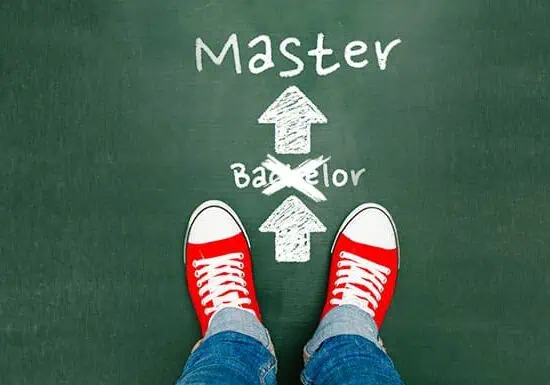Do You Need a Bachelor’s to Get a Master’s Degree?
Updated: July 30, 2025

Key Takeaways
- Alternative Pathways Exist: Some master’s programs accept significant work experience, certifications, or training in place of a traditional undergraduate degree.
- Executive and Professional Programs Lead: EMBA, vocational master’s degrees, and professional development tracks are most likely to admit candidates without bachelor’s degrees.
- Strong Application Essential: You’ll need to show you’re ready for graduate-level work through a detailed resume, personal statement, references, and supporting materials.
- Limited but Growing Options: While still uncommon, these flexible programs are offered by institutions like the University of Essex Online, California Southern University, and Southern Cross University.

Reasons to Get a Master’s Degree Without a Bachelor’s Degree
Pursuing a master’s degree without first earning a bachelor’s can offer real advantages, especially for experienced professionals who are ready to advance in their careers. Skipping the traditional path can save time and money, allowing you to move directly into a graduate program that builds on your existing skills.
This approach is particularly valuable if you’ve spent years working in your field and want to formalize your knowledge with an advanced degree. It also benefits international students whose prior education doesn’t align neatly with U.S. or U.K. degree structures and career changers seeking to pivot into high-demand fields without repeating foundational coursework.
Some key benefits include:
- Faster path to career advancement
- Lower total cost of education
- Access to graduate-level content without redundant courses
- Entry into competitive fields with formal credentials
- Recognition of practical, real-world experience
Types of Master’s Programs That Allow Entry Without a Bachelor’s
Executive MBA (EMBA) programs are one of the most flexible. They’re made for professionals with years of leadership or management experience. Many schools treat that experience as equal to having a bachelor’s, especially in business and organizational roles.
Vocational and applied master’s programs in fields like education, the arts, or tech may also accept students through non-traditional routes. You might get in based on your portfolio, industry certifications, or a mix of formal and informal training.
Some universities also offer professional development pathways. These are for people who’ve built up deep experience in their field, even if they never earned a traditional degree. They may accept alternative qualifications like diplomas, microcredentials, or job-based learning.

How to Apply for a Master’s Without a Bachelor’s Degree
If you’re pursuing a master’s without a bachelor’s, your application must clearly show that you meet the academic and professional standards expected at the graduate level. Key steps include:
- Identify programs with flexible admissions policies: Look for universities that explicitly mention alternative pathways or experiential learning recognition.
- Highlight your experience: Prepare a detailed resume showcasing relevant job roles, projects, leadership responsibilities, and skills.
- Write a strong personal statement: Focus on your career journey, why you’re ready for graduate-level study, and how the program aligns with your goals.
- Gather supporting documents: This could include certifications, course completions, references from industry professionals, or a portfolio of work.
- Reach out to admissions advisors: Contact the university to confirm eligibility and get advice on strengthening your application.

Common Requirements for Master’s Applications Without a Bachelor’s
If you’re applying without a bachelor’s, you’ll need to provide strong evidence that you can succeed in a graduate-level academic environment. These are the most common requirements:
- Professional resume or CV: Detailing roles, responsibilities, and years of experience in relevant fields.
- Letters of recommendation: From employers or supervisors who can vouch for your capabilities and readiness for advanced study.
Personal statement or essay: Explaining your goals, background, and why you’re pursuing a master’s without a bachelor’s degree. - Portfolio or proof of work: Especially for creative or technical fields, where practical output demonstrates expertise.
- Standardized test scores (if required): Some programs may still ask for GMAT, GRE, or subject-specific tests to assess readiness.
These materials help admissions teams evaluate whether your experience provides a solid foundation for postgraduate success.
Universities Known for Flexible Master’s Admissions
While rare, a few universities are known for accepting students into master’s programs without requiring a bachelor’s degree, especially when applicants can demonstrate equivalent experience or qualifications. Examples include:
- University of Essex Online (UK): Offers certain postgraduate programs where professional work experience may fulfill entry criteria, particularly in business and healthcare-related fields.
- California Southern University (USA): Accepts students into some graduate programs based on a combination of prior learning and work experience, even without a formal undergraduate degree.
- Southern Cross University (Australia): Provides pathway programs for students with relevant industry experience, allowing them to transition into select master’s degrees.
Each institution has its own admissions process, so it’s essential to review eligibility requirements directly or speak with an admissions advisor.
Final Thoughts
So, do you need a bachelor’s degree to get a master’s? Not always. While most graduate programs still require a traditional undergraduate degree, some institutions recognize the value of real-world experience, professional training, and industry credentials. These alternative pathways provide opportunities for qualified candidates to pursue advanced education without backtracking through an entire undergraduate program.
If you’ve built a strong foundation through your career, certifications, or other learning experiences, it’s worth exploring flexible master’s programs that align with your goals. The key is to be strategic—identify programs with clear alternative admissions policies, prepare a comprehensive application, and be ready to demonstrate that you’re capable of succeeding at the graduate level.
FAQs
Can you get a master’s degree without having a bachelor’s degree?
Some universities allow students to enter a master’s program without holding a bachelor’s degree, particularly if they have significant professional experience or alternative qualifications.
What are alternative pathways to earn a master’s without bachelor’s requirements?
Alternative pathways may include recognition of prior learning, work experience, certifications, vocational training, or a strong portfolio in lieu of an undergraduate degree.
Which universities accept students into master’s programs without bachelor’s degrees?
Examples include University of Essex Online (UK), California Southern University (USA), and Southern Cross University (Australia), which offer flexible admission based on experience and alternative credentials.
How do bridge programs help students enter master’s degree programs?
Bridge programs offer foundational coursework or modules that prepare non-traditional applicants for graduate study, helping them meet academic standards without completing a full bachelor’s degree.
What work experience counts toward master’s degree admission without a bachelor’s?
Leadership roles, long-term professional experience in a relevant industry, technical expertise, and proven project accomplishments may all be considered in place of a bachelor’s degree.
Are there specific fields that allow master’s entry without a bachelor’s?
Yes. Fields like business (especially EMBA), technology, education, and creative arts are more likely to accept alternative qualifications or industry experience.
How long does it take to complete a master’s without a bachelor’s?
Most programs still take 1–2 years, depending on the format and intensity. However, skipping the bachelor’s phase can save several years of total study time.
What are the costs of pursuing a master’s degree without a bachelor’s?
Tuition costs are generally the same as traditional graduate programs, but you may save money by avoiding undergraduate tuition. Some programs also offer modular pricing, financial aid, or employer sponsorships.
